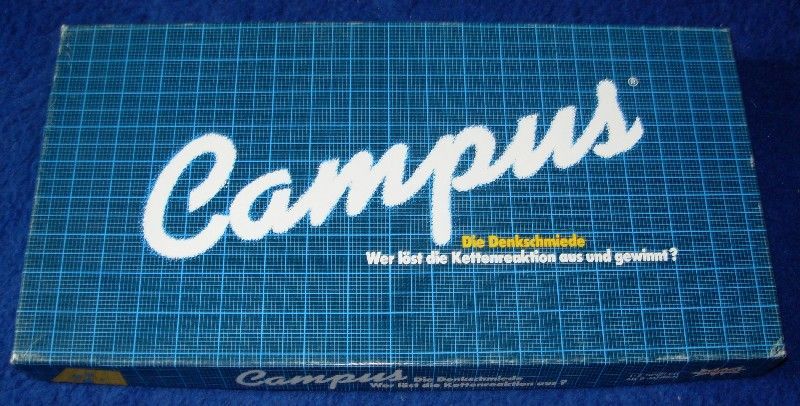Campus (1985) Board Game
Campus is a dice and math board game designed by André François and released in in 1985. The game is designed for 1-2 players and is recommended for ages 8 and up. Players use dice rolling, modular board, and pattern recognition to strategically place their buildings on the game board.
Game Components of Campus
How To Setup Campus
To set up Campus, each player receives their own board and places it in front of them. The game involves rolling two dice, and the player who did not roll the dice must turn over a tile on their board corresponding to the sum of the dice. This simple setup sets the stage for a game that focuses on strategic tile management.
Gameplay Mechanics and Game Objective
– Players take turns rolling the dice.
– The player who did not roll the dice must turn over a tile on their board that matches the sum of the dice.
– The game continues until one player has cleared all their tiles, making them the winner.
Player Experience
Playing Campus is a straightforward yet engaging experience. The game requires a mix of luck and strategy, as players need to hope for the right rolls while also planning their tile placements carefully. It is a game that can be enjoyed by both children and adults, making it a great family activity.
Pros
Cons
Personal Thoughts on Campus
Campus is a game that is ideal for those looking for a light, fun, and educational experience. It is particularly suited for families or younger players who are just starting to explore the world of board games. While it may lack the depth and complexity of more advanced games, its simplicity and strategic elements make it an enjoyable and accessible option for a wide range of players.
We are supported by our audience. When you purchase through links on our site, we may earn an affiliate commission, at no extra cost for you. Learn more.

